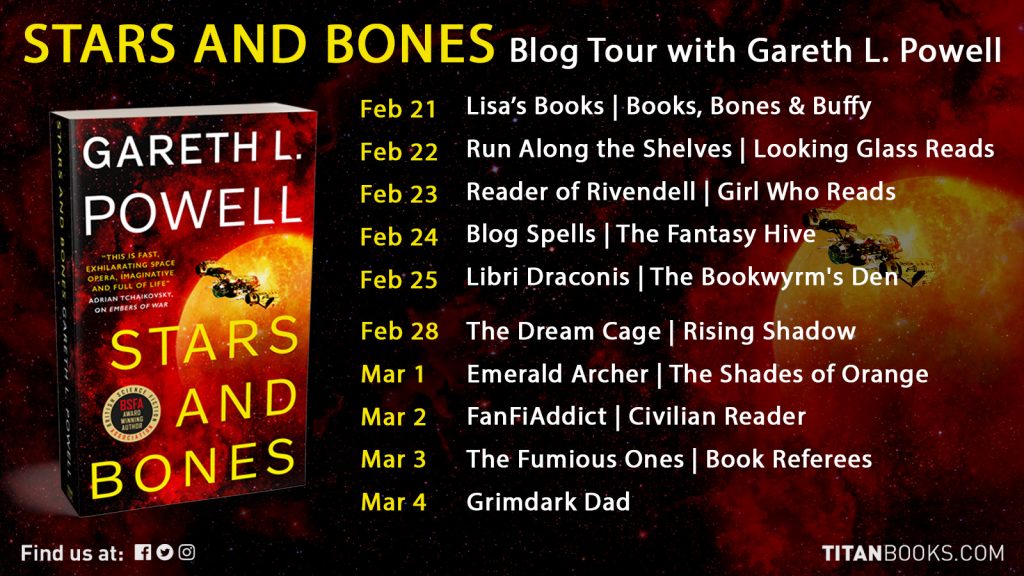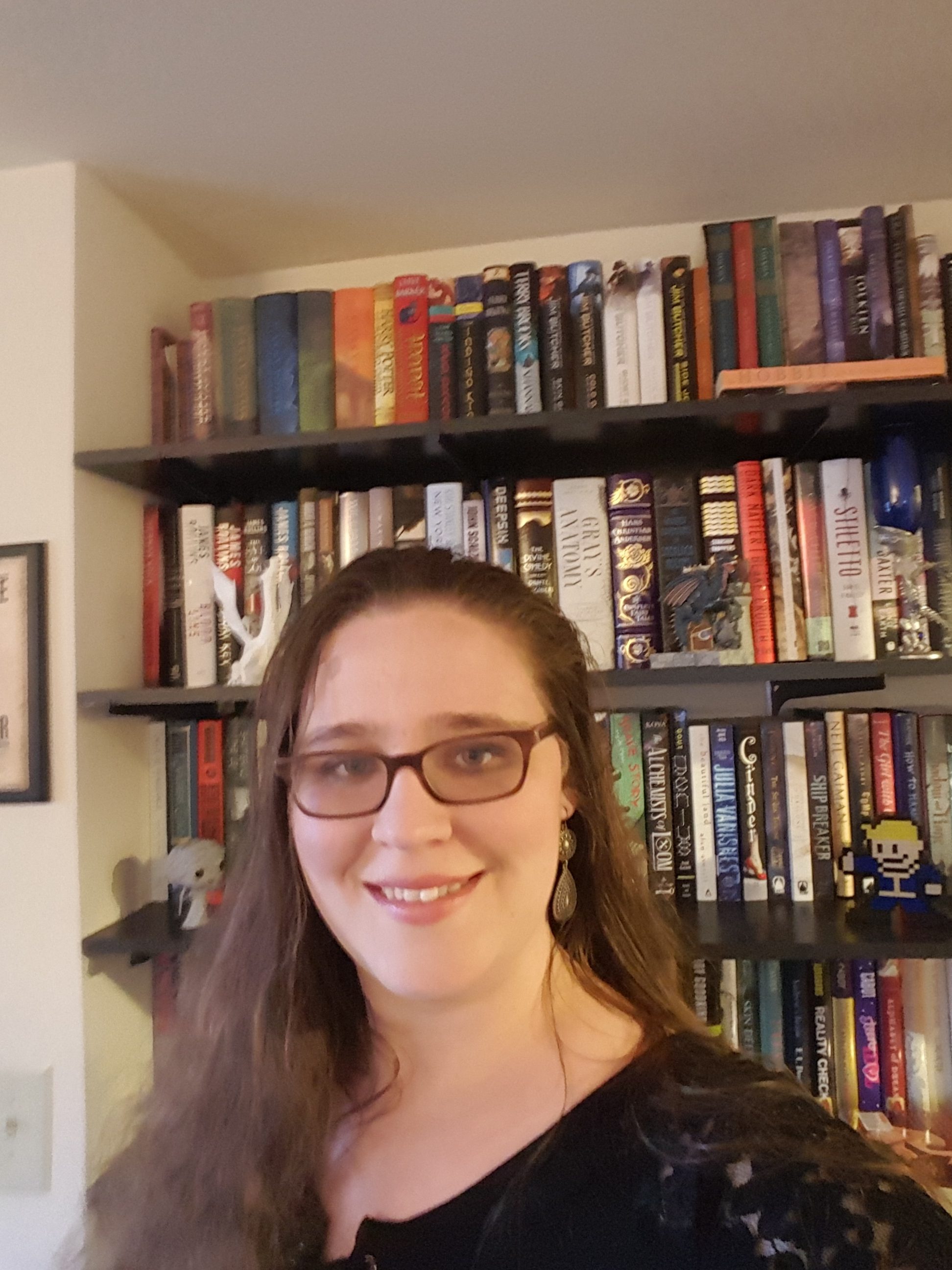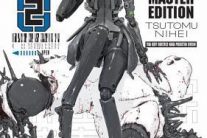
By Gareth L. Powell
One of the things authors get asked most frequently is to name the other writers who have most strongly influenced their work, and I think it’s a fair enough question. No one writes in total isolation, after all. Our work always forms part of a conversation between the ourselves and the wider culture, and we are influenced, either positively or negatively, by every piece of fiction we consume.
So, with that in mind, I have been asked to write a few words about the influences behind my forthcoming novel, Stars and Bones.
The book presents us with a scenario in which the human race has been evicted from the Earth and set adrift in a fleet of gigantic arks. In this respect, it bears a superficial resemblance to Battlestar Galactica, but the creation of the vast, intelligent arks probably owes more to my love of Iain M. Banks’s ‘Culture’ novels. As in the Culture, the citizens of my fleet exist in a post-scarcity civilisation where nobody goes hungry and everyone has access to anything they need, watched over by the superior minds of their intelligent starships. Reading Iain M. Banks taught me that it’s okay to let your imagination off the leash and dream big. The Culture novels spoke to me because they are so well written, with such memorable characters. They are the sort of books it’s easy to be immersed in. I love the ships, and the way they argue and scheme and bicker; and I love the idea of writing about a utopia. In science fiction, most writers seem to find it easier to write about dystopias. Banks’s genius lay in taking a perfect society, and wringing drama from it.
In Star and Bones, humanity comes into contact with an entity capable of infecting, subverting and absorbing anything it touches. Suddenly, no one knows who is real and who is fake. To be touched is to be corrupted, so how can you trust anyone else? Some readers are going to assume this aspect of the book is some sort of reaction to the global pandemic we’ve been living through these past couple of years, but the truth is it owes more to John Carpenter’s classic 1982 horror movie, The Thing—especially in the way the entity is able to reshape flesh and bone into whatever deadly combination it desires.
As for the sentient scout ship Furious Ocelot, whose adventures form the heart of the story, it would be very hard not to acknowledge the influence of Anne McCaffrey’s 1969 novel, The Ship Who Sang, and every other novel or short story that has featured a lone ship exploring the ragged edges of known space.
Science fiction authors have always been in conversation with each other. As we write, we take tropes from earlier works and subvert or reinvent them. We provide rebuttals to the arguments of other authors, and find new ways to explore topics. For instance, if we’re writing about alien invasion, it’s hard to do so without a tip of the hat to H.G. Wells—but that’s okay. The most fascinating thing about science fiction is the way it constantly rebuilds itself.
#
Stars and Bones is published by Titan Books on 1st March 2022. Follow Gareth on Twitter and Instagram: @garethlpowell






Post a comment